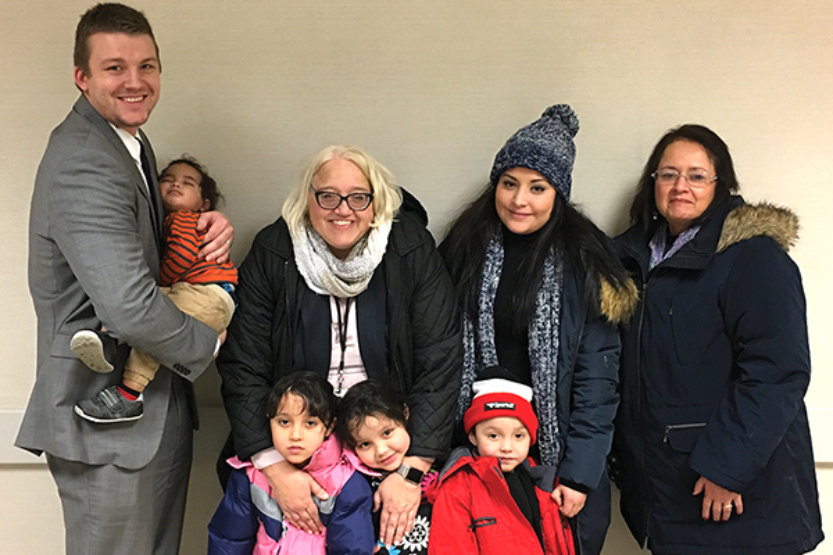Asylum Advocates
 Attorneys Corey Hickman and Julie Trester (left) spent two years on a pro bono case to win asylum for a family of asylum seekers. (Image courtesy of Cozen O'Connor)
Attorneys Corey Hickman and Julie Trester (left) spent two years on a pro bono case to win asylum for a family of asylum seekers. (Image courtesy of Cozen O'Connor) It was no ordinary courtroom victory last November for Chicago attorneys Julie Trester, ’86 LAS, JD ’89, and Corey Hickman, ’11 LAS. Their client, a 21-year-old Mexican mother, cried. The two seasoned attorneys grew misty-eyed and warmly embraced her. The mother and her children won asylum, despite an unfavorable opinion from the U.S. Attorney General that appeared to doom their case. The attorneys, neither of whom specializes in immigration law, dedicated two years to the pro bono case.
“From a legal standpoint, I was not optimistic,” says Hickman, who, like Trester, works for the Chicago office of the Cozen O’Connor law firm. “But from an emotional or humane perspective, I didn’t know how the judge could listen to her story and not rule for her.”
The mother and three of her children (her fourth was later born here) crossed the border in 2015. In Mexico, she had been abused and raped—in front of the children—by their father. He was connected to the notorious Jalisco New Generation Cartel gang. After he ran afoul of the cartel, gang members wielded machine guns outside their home and stalked the woman when she left to do errands.
Trester specializes in labor and employment issues, and Hickman works for their firm’s commercial litigation department. So the pair had to get up to speed on immigration law.
With Trester’s legal assistant translating, the pair prepared for the case by attending frequent meetings in a church near the tiny suburban apartment where the mother and her children lived. “They had absolutely nothing. It just pulled at your heartstrings,” says Trester, whose own mother’s struggles—Trester’s father died when she was young—helped her identify with her client.
Trester’s experiences at Illinois predisposed her to social justice work. As a residential advisor, she led service projects as teambuilding exercises, and in law school, she was involved in the National Welfare Rights Organization and the Prisoners’ Rights Research Project. Hickman quite purposely chose this pro bono case: “It’s about the political climate. I feel strongly about what’s happening with immigrants.”
Winning their case became more problematic in June 2018, when then–U.S. Attorney General Jeff Sessions ruled that domestic violence was not a legal basis for asylum. The Chicago attorneys skillfully worked around that by focusing on the gang violence that threatened their client.
The courtroom outcome was a victory for human decency, says Trester, and for the immigrant family, it helped set in motion the timeless arc of acculturation.
“The family is doing well,” Trester says. “The kids are sweet, smart and resilient.”

